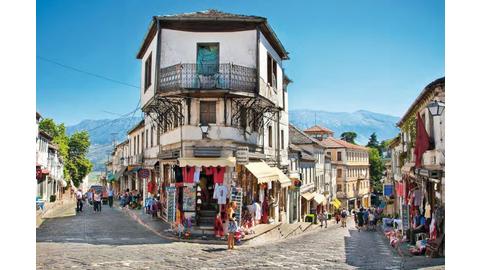Economy to grow by 4.3% y/y in Q2, European Commission said
The Albania's annual gross domestic product growth will slightly decelerate to 4.3% in the second quarter of 2018, from 4.5% in the preceding quarter, the European Commission said on Friday On the demand side, growth was mainly driven by household consumption which strengthened its solid growth to 3.3 % year-on-year, supported by employment growth, moderate inflation and low interest rates, the Commission said in its EU Candidate Countries' & Potential Candidates' Economic Quarterly report-third quarter. "Exports of goods and services continued their recovery in the second quarter with 3.9 % while imports of goods and services grew more slowly with 2% (y/y). Overall exports increased their share of GDP to 34.1% whereas imports eased slightly but remained on their elevated level of almost 50% of GDP," the report added. According to the report, electricity production and processing industries contributed significantly to GDP growth in 2018 so far. "Construction decelerated as did the services sector, mainly due to base effects, while both sectors continued to contribute positively to the economic performance." The economic upswing continued in the Western Balkans, with annual gross domestic product growth accelerating to 4.3% in the second quarter of 2018, from an average growth rate of 3.6% in the preceding quarter, the report said. "Private consumption and investment continued to support growth and exports seem to have regained momentum. Current account deficits narrowed further in most countries; but overall external positions in many cases remain vulnerable," the Commission noted. Economic expansion led to further job creation but at a slowing pace and unemployment rates still remain high across the Western Balkans, although they continued to fall in most countries, the Commission added. In Serbia and Albania, economic growth slowed marginally in the second quarter to a still robust 4.8% and 4.3%, respectively, according to the report. The average job growth rate in the Western Balkans fell to 0.6% from 1.5% in the first quarter. Growing employment levels contributed to lower unemployment rates in most countries in the region.

